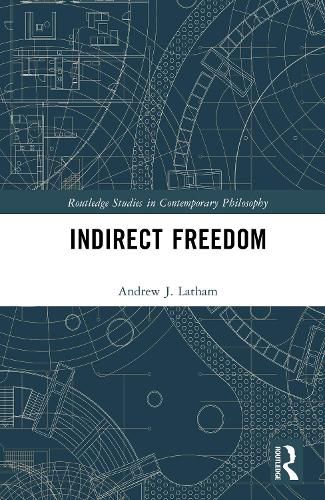Readings Newsletter
Become a Readings Member to make your shopping experience even easier.
Sign in or sign up for free!
You’re not far away from qualifying for FREE standard shipping within Australia
You’ve qualified for FREE standard shipping within Australia
The cart is loading…






This book advances a new kind of compatibilist account of free will: indirect compatibilism. It is the first sustained philosophical analysis of the idea that the ordinary concept of free will is a conditional one.
Indirect compatibilism is the combination of two theses. The first is that the best understanding of our concept of free will is that it is a conditional concept-that indeterminism or libertarian powers are necessary if they are actual, but not if they are not. The second is indirection-that actions are free either when they are caused by standard conscious psychological processes, or else by sub-personal level processes influenced in various ways by conscious psychological processes. The book combines traditional philosophical analysis with empirical work--in particular, experimental philosophy and cognitive neuroscience-to produce a detailed description and defence of indirect compatibilism. Indirect compatibilism resolves two important problems in the free will literature: that people as a matter of fact do not accept that free actions can exist in a deterministic universe, and that some simple actions are under the direct control of conscious psychological processes.
Indirect Freedom will appeal to researchers and graduate students interested in the metaphysics of free will, experimental philosophy, philosophy of mind, and cognitive neuroscience.
$9.00 standard shipping within Australia
FREE standard shipping within Australia for orders over $100.00
Express & International shipping calculated at checkout
This book advances a new kind of compatibilist account of free will: indirect compatibilism. It is the first sustained philosophical analysis of the idea that the ordinary concept of free will is a conditional one.
Indirect compatibilism is the combination of two theses. The first is that the best understanding of our concept of free will is that it is a conditional concept-that indeterminism or libertarian powers are necessary if they are actual, but not if they are not. The second is indirection-that actions are free either when they are caused by standard conscious psychological processes, or else by sub-personal level processes influenced in various ways by conscious psychological processes. The book combines traditional philosophical analysis with empirical work--in particular, experimental philosophy and cognitive neuroscience-to produce a detailed description and defence of indirect compatibilism. Indirect compatibilism resolves two important problems in the free will literature: that people as a matter of fact do not accept that free actions can exist in a deterministic universe, and that some simple actions are under the direct control of conscious psychological processes.
Indirect Freedom will appeal to researchers and graduate students interested in the metaphysics of free will, experimental philosophy, philosophy of mind, and cognitive neuroscience.